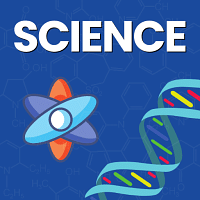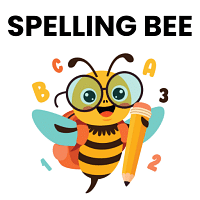Class 4 Exam > Class 4 Questions > Are there any assessments or tests included i...
Start Learning for Free
Are there any assessments or tests included in the Science textbook?
Most Upvoted Answer
Are there any assessments or tests included in the Science textbook?
Assessments and Tests in the Science Textbook
Science textbooks for Class 4 generally include various assessments and tests to evaluate students' understanding and knowledge of the subject. These assessments are designed to help students apply the concepts they have learned and assess their progress.
1. Formative Assessments: These assessments are conducted during the learning process to provide ongoing feedback and monitor students' progress. They are aimed at identifying areas where students may need additional support and helping them improve their understanding.
2. Summative Assessments: Summative assessments are conducted at the end of a unit or chapter to evaluate students' overall understanding of the concepts covered. These assessments often take the form of quizzes, tests, or exams.
3. Objective-based Assessments: Objective-based assessments consist of multiple-choice questions, true/false statements, or fill-in-the-blank questions. These assessments test students' factual knowledge and understanding of key concepts.
4. Subjective Assessments: Subjective assessments typically require students to provide longer written responses or explanations. These assessments evaluate students' ability to apply concepts, analyze information, and think critically.
The frequency of assessments may vary depending on the curriculum and the specific textbook being used. However, it is common for science textbooks to include assessments at the end of each chapter or unit. This allows students to review and consolidate their learning before moving on to the next topic.
Assessments play a crucial role in the learning process as they help students:
- Identify areas of strength and weakness in their understanding of the subject.
- Monitor their progress and set goals for improvement.
- Develop problem-solving and critical thinking skills.
- Gain confidence in their knowledge and abilities.
Science textbooks for Class 4 often include a variety of assessments and tests to evaluate students' understanding and progress. These assessments help students apply their knowledge, identify areas for improvement, and develop important skills. Regular assessments contribute to a comprehensive learning experience and support students' academic growth in the subject of science.
Introduction:
Science textbooks for Class 4 generally include various assessments and tests to evaluate students' understanding and knowledge of the subject. These assessments are designed to help students apply the concepts they have learned and assess their progress.
Types of Assessments:
1. Formative Assessments: These assessments are conducted during the learning process to provide ongoing feedback and monitor students' progress. They are aimed at identifying areas where students may need additional support and helping them improve their understanding.
2. Summative Assessments: Summative assessments are conducted at the end of a unit or chapter to evaluate students' overall understanding of the concepts covered. These assessments often take the form of quizzes, tests, or exams.
3. Objective-based Assessments: Objective-based assessments consist of multiple-choice questions, true/false statements, or fill-in-the-blank questions. These assessments test students' factual knowledge and understanding of key concepts.
4. Subjective Assessments: Subjective assessments typically require students to provide longer written responses or explanations. These assessments evaluate students' ability to apply concepts, analyze information, and think critically.
Frequency of Assessments:
The frequency of assessments may vary depending on the curriculum and the specific textbook being used. However, it is common for science textbooks to include assessments at the end of each chapter or unit. This allows students to review and consolidate their learning before moving on to the next topic.
Importance of Assessments:
Assessments play a crucial role in the learning process as they help students:
- Identify areas of strength and weakness in their understanding of the subject.
- Monitor their progress and set goals for improvement.
- Develop problem-solving and critical thinking skills.
- Gain confidence in their knowledge and abilities.
Conclusion:
Science textbooks for Class 4 often include a variety of assessments and tests to evaluate students' understanding and progress. These assessments help students apply their knowledge, identify areas for improvement, and develop important skills. Regular assessments contribute to a comprehensive learning experience and support students' academic growth in the subject of science.
Attention Class 4 Students!
To make sure you are not studying endlessly, EduRev has designed Class 4 study material, with Structured Courses, Videos, & Test Series. Plus get personalized analysis, doubt solving and improvement plans to achieve a great score in Class 4.

|
Explore Courses for Class 4 exam
|

|
Are there any assessments or tests included in the Science textbook?
Question Description
Are there any assessments or tests included in the Science textbook? for Class 4 2024 is part of Class 4 preparation. The Question and answers have been prepared according to the Class 4 exam syllabus. Information about Are there any assessments or tests included in the Science textbook? covers all topics & solutions for Class 4 2024 Exam. Find important definitions, questions, meanings, examples, exercises and tests below for Are there any assessments or tests included in the Science textbook?.
Are there any assessments or tests included in the Science textbook? for Class 4 2024 is part of Class 4 preparation. The Question and answers have been prepared according to the Class 4 exam syllabus. Information about Are there any assessments or tests included in the Science textbook? covers all topics & solutions for Class 4 2024 Exam. Find important definitions, questions, meanings, examples, exercises and tests below for Are there any assessments or tests included in the Science textbook?.
Solutions for Are there any assessments or tests included in the Science textbook? in English & in Hindi are available as part of our courses for Class 4.
Download more important topics, notes, lectures and mock test series for Class 4 Exam by signing up for free.
Here you can find the meaning of Are there any assessments or tests included in the Science textbook? defined & explained in the simplest way possible. Besides giving the explanation of
Are there any assessments or tests included in the Science textbook?, a detailed solution for Are there any assessments or tests included in the Science textbook? has been provided alongside types of Are there any assessments or tests included in the Science textbook? theory, EduRev gives you an
ample number of questions to practice Are there any assessments or tests included in the Science textbook? tests, examples and also practice Class 4 tests.

|
Explore Courses for Class 4 exam
|

|
Suggested Free Tests
Signup for Free!
Signup to see your scores go up within 7 days! Learn & Practice with 1000+ FREE Notes, Videos & Tests.























